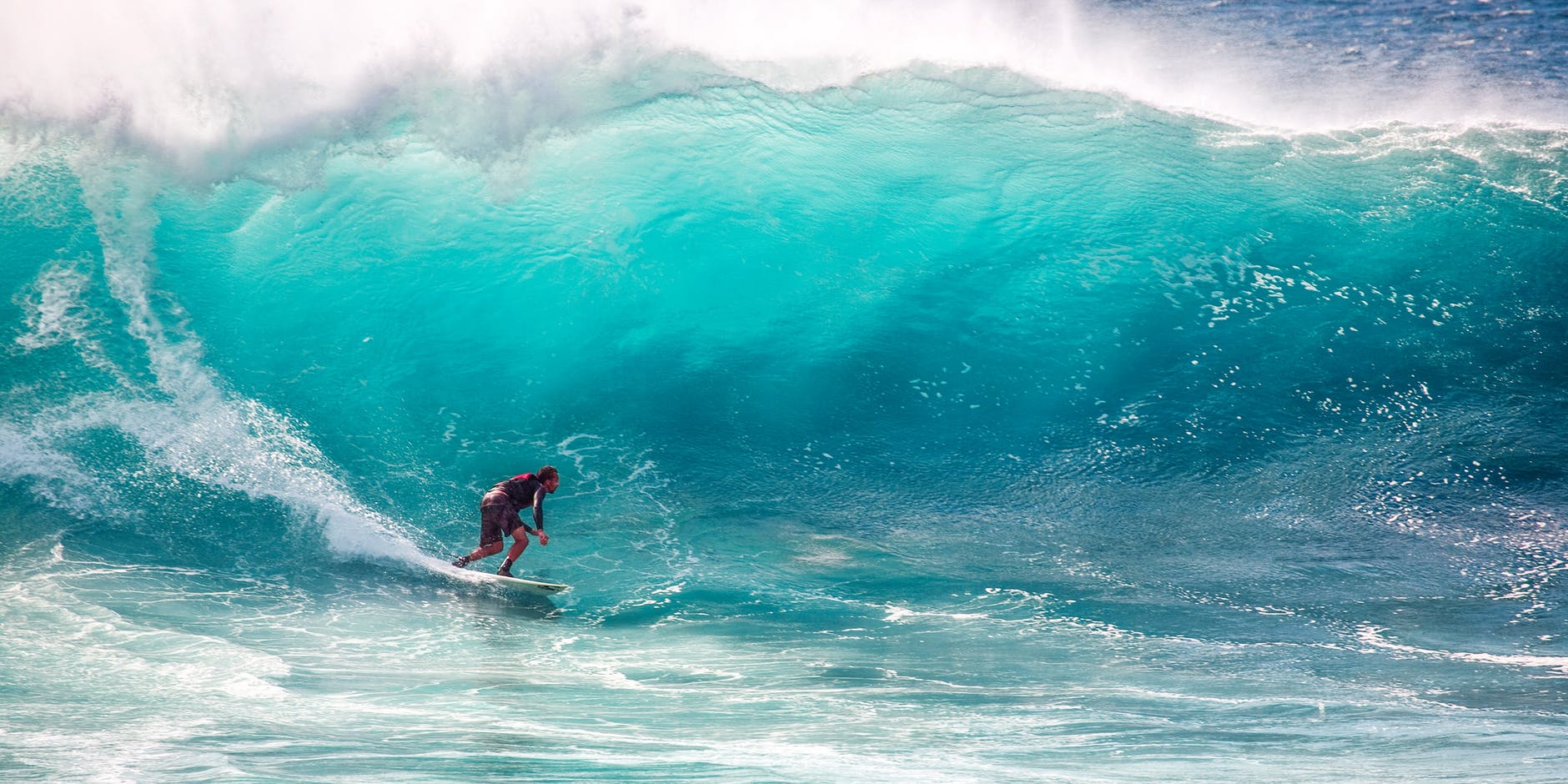Last Updated: February 14th, 2020
The question…
Hey! What’s your take on having separate portfolios/websites for different niches (weddings, portraits, family’s, landscapes, etc).
I ask because I got hooked a few years ago doing surf photography. Outside the ocean, I’ve shot a few friend’s weddings and and have recently been doing ~10 portrait sessions per month as a side, side gig.
Thinking it’s time to generate a more formal web presence.
Thanks!
Our answer…
What do you want your focus in photography to be?
 We have been running our wedding photography business for the last 3 years, and pretty successfully at that. One of the things we decided early on is that we wanted to specialize in wedding & portrait work, instead of trying to do photography for all types of people and situations.
We have been running our wedding photography business for the last 3 years, and pretty successfully at that. One of the things we decided early on is that we wanted to specialize in wedding & portrait work, instead of trying to do photography for all types of people and situations.
This can be challenging for many photographers who love photography and are open to shooting anything and everything.
While we focus on weddings and portraits, we actually have a real passion for travel and landscape photography, too. We’ve kind of compartmentalized all these photography niches and chose the ones we felt we wanted to pursue for profit, and which ones we’d keep on the backburner to explore as creative outlets and hobbies.
While there are certainly some photographers who try to cater towards every photographic need out there, we most frequently see the most popular and successful photographers working today tend to specialize. At least – this is what they portray in their branding.
For example, our brand (Hand and Arrow Photography) again focuses on weddings and couples portraits (so engagement photos, anniversary shoots, etc.). If you go on our website and look through our portfolio, the vast majority of our content is dedicated to driving this home. This helps attract our target audience (couples), and will likely turn off other people (like a corporation wanting to hire a photographer to shoot an event). This is very intentional.
You see the same type of thing with most other photographers who are also making money with their craft. Some established photography brands we follow include:
- Mads Peter Iverson (landscape photographer)
- The Hearnes Adventure Photography (wedding + elopement photographers)
Setting realistic photography business goals
We point all of this out because, to really answer your question, you need to be able to answer 2 simple questions:
- What do you want to take pictures of professionally?
- Who do you want to be your target audience/clients?
It’s obvious from what you wrote and what we can see on your Instagram account that you love photographing surfing. Your shots are killer by the way!
What you need to consider is this: do you envision there being a big enough market for you to make money from taking surf photos? We’re not familiar enough with the surfing industry, but would imagine it would be a very challenging niche to get consistent work in that pays well.
Of course, you’re already taking on wedding & portrait work – and we’re going to imagine you are probably already seeing that these 2 niches are “easier” to get clients in. It’s just a simple fact: more people want portraits than surfers need photographers. With weddings, it’s also well known that these gigs can pay really well (in our experience – we charge $4,000 on average to cover a wedding day).
So – Create Separate Brands or Not?
With such distinct niches as wedding photography and surf photography, it would make the most sense to create different brand identities. This means: you’ll want to make separate websites.
Think about it like this – if the homepage of your website is loaded with wedding photos you’ve taken for past clients, why would a surfer want to hire you to paddle out into the ocean with them? Even if you had a page on your site talking about how you love taking surf photos and offer this service, first impressions are very important.
On the flip side – if your landing page had a load of surf photos you’ve taken, would a bride-to-be be at all interested in having you shoot her wedding?
A Creative Opportunity
 If you define your brand as a “wedding photographer” or “portrait photographer” or “surfing photographer”, you really are pigeon-holing what you are offering.
If you define your brand as a “wedding photographer” or “portrait photographer” or “surfing photographer”, you really are pigeon-holing what you are offering.
When a person searches for a “wedding photographer” online, they want to find a wedding photographer – not a surf photographer that is open to do weddings for some extra money.
The great news here, though, is that with a little creativity you can find a way to intermix many styles of photography under one brand that still feels uniform.
Our 5 minute idea would look like this:
Beach Bum Photography
This photography business specializes in services taking place at the beach pretty much exclusively. It’s a place you really love, and this is already showcased in your social media portfolio where you have surf pictures as well as weddings and portraits taken at the beach.
With the right promotion and branding, you could set yourself up as the “go to” photographer for beach photographs of all types. This could be attractive to surfers just as much as a couple planning a wedding at a beach resort.
Last Thoughts
In the world of business, there is never a one size fits all strategy.
But, in the photography industry, we’ve seen trends that show that those people who specialize in a niche tend to bring in more traffic, book more clients, and make more money. We believe the reason for this really comes back to the old saying…”a jack of all trades, but a master of none.”
People who are going to pay you good money for a photography service want to see you are passionate about the subject matter you work with. This passion is revealed in experience and dedication.
It’s much easier for us to sell someone on a wedding photography service when we can share how much we love the work and have already shot 50 weddings (and they can see this documented in our portfolio!). In the same way, as good of photographers as we are, we’d have trouble really selling our skills to take surf photos – we just don’t have that experience.
TL;DR: We suggest having different brands for really distinct niches (like surfing and weddings), or finding creative ways to combine your multiple interests into one service. However, you may want to just stick with one when starting out, otherwise you could end up wearing yourself thin and not giving yourself the space to grow either business opportunity.